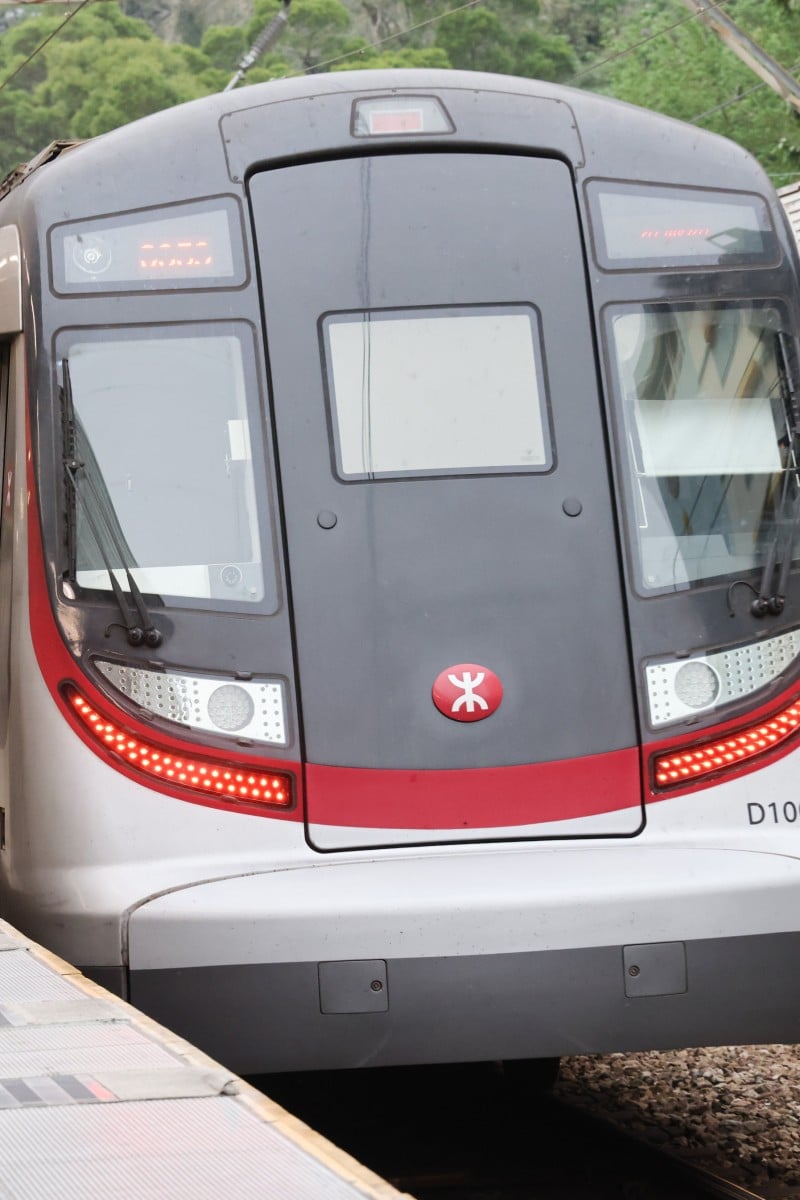
- Fare hike cannot be higher than the year-on-year change in a general household’s median monthly income, officials say
- New pricing is determined by inflation, the rail operator’s productivity and profitability, and a wage index for transport sector workers
 Hong Kong’s MTR passengers face fare rises of 3 per cent in June. Photo: Jelly Tse
Hong Kong’s MTR passengers face fare rises of 3 per cent in June. Photo: Jelly TseHong Kong’s rail operator will hike ticket prices by a maximum of 3.09 per cent this year. This is the second rise since officials introduced a new formula that considers affordability for residents.
The capped fare rise comes into effect in June and has been determined by a basket of factors including inflation, the MTR Corporation’s productivity and profitability, and a wage index for transport sector workers.
These factors would have resulted in a fare rise of 3.2 per cent. Along with a 1.85 per cent increase deferred from last year, the total adjustment would have been 5.05 per cent.
However, under a fare adjustment mechanism, the increase has been capped as it cannot be higher than the year-on-year change in a general household’s median monthly income, which was 3.09 per cent in the fourth quarter of 2023 according to official data.
Jeny Yeung Mei-chun, the MTR Corp’s Hong Kong transport services director, said concessions worth HK$2.9 billion unrelated to the mechanism would continue in the coming year for all walks of life, including the elderly, children, eligible students and people with disabilities.
She also highlighted other MTR offers including: City Saver, a 40 single journey ticket valid for 40 days and costing HK$445; a 50 HK cents interchange discount with green minibuses; monthly passes; Tuen Mun-Nam Cheong day passes; and a 25 per cent early-bird fare discount for travel between 7.15am and 8.15am on weekdays.
Elderly Hongkongers will need personalised cards for HK$2 subsidy next year
“The ‘affordability cap’ arrangement has taken its effect this year in striking a balance between public affordability and the corporation’s needs to maintain, upgrade and renew the railway system,” Yeung said.
After the increase takes effect, an adult travelling by train from Sheung Shui to Admiralty, for example, will have to pay an extra 70 cents, at HK$22.20 for a single trip using an Octopus card.
An adult going from Admiralty station to Shenzhen via the Lo Wu border checkpoint using an Octopus card will have to pay HK$1.60 more, at HK$52.30.
A new formula announced in March 2023 stipulates that fare changes should be calculated as the total of the price and wage index, minus a productivity factor. The mechanism is set to be used for five financial years, or until the 2027-28 cycle.
According to the Census and Statistics Department, the wage index for transport workers was 5.2 per cent in December.
The first price increase under the new formula was made a week after it was announced last year, with MTR fares rising by 2.3 per cent. It was also the first time in four years the MTR Corp had raised its ticket prices.
Hong Kong’s education minister pledges moderated university fee hikes
The fare adjustment rate this time was higher at 3.2 per cent but because of the cap the remaining 0.11 per cent would be recouped in the following two years, Yeung said. She said 0.06 per cent would be recovered in 2025-26 and 0.05 per cent in 2026-27.
In last year’s fare review, 1.85 per cent was deferred and will also be carried forward for recouping in 2025-26.
Quentin Cheng Hin-kei, a spokesman for commuter concern group the Public Transport Research Team, warned of rising risks from a snowball effect from the fare increases the corporation had deferred to the coming years.
“There is a need to improve the fare adjustment mechanism, such as by putting a cap on the fares to be recouped or setting a limit on a certain period of time the corporation has to recoup the fares,” he said.
He noted that the deferred fare rises would be calculated from a higher base. For example, the 0.05 per cent increase postponed to 2026-27 will be based on 2026 fare levels rather than 2024.
Hong Kong to see 11 million inbound and outbound travellers in coming holidays
Yeung said that since the rail merger between the company and the Kowloon-Canton Railway Corporation (KCRC) in 2007, “the MTR’s average annual fare adjustment rate has been lower than the average year-on-year inflation in Hong Kong over the same period”.
Lawmaker Michael Tien Puk-sun, a former KCRC chairman, said the 3.09 per cent fare increase was fair, and good for passengers. “The affordability cap balances everyone’s interests,” he said.
The effective date of the MTR’s revised fare table will be announced later.